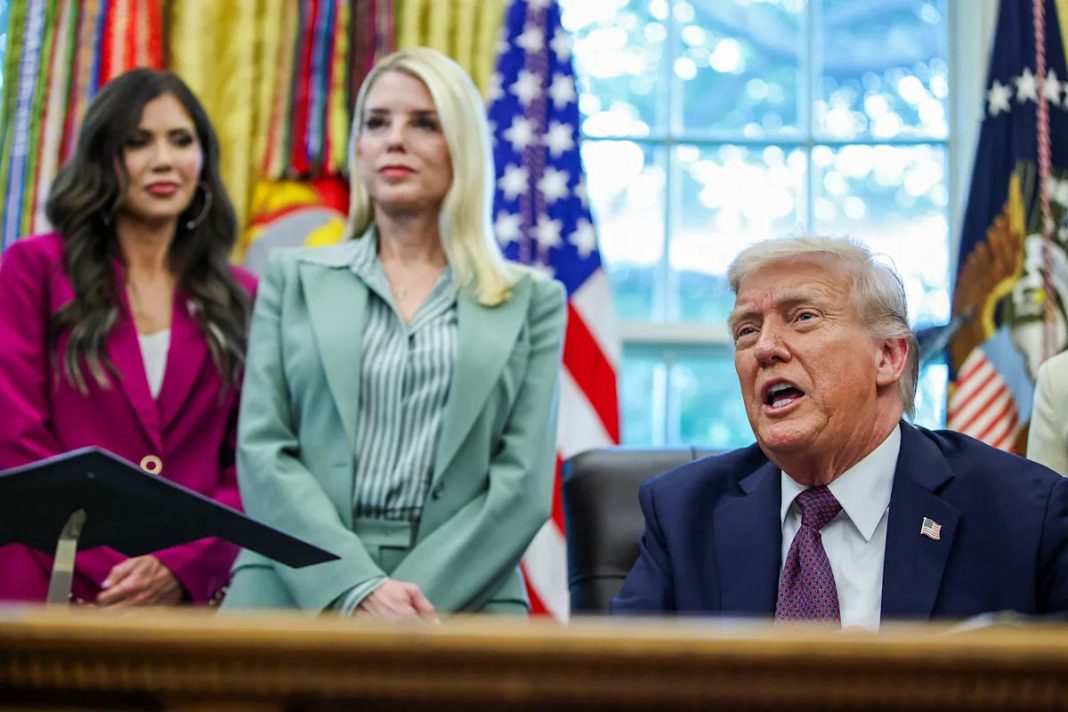The first sign of trouble emerged in early May. After the Trump administration suffered a series of legal setbacks in federal courts, White House deputy chief of staff Stephen Miller told reporters that he and his colleagues were “actively looking” at possibly suspending the writ of habeas corpus.
This was, of course, quite bonkers. As NBC News explained soon after, the writ of habeas corpus dates back centuries, and it “grants anyone detained in the U.S. the right to see a judge, challenge the government’s evidence against them and present a defense.”
To suspend habeas — something that happened during the U.S. Civil War, for example — is to allow the government to lock people up without charges, while denying those in custody the ability to contest their incarceration.
In the four months that followed Miller’s comments, neither Donald Trump nor anyone on his team followed through on this, though it did come up again during a weird White House event about antifa. HuffPost reported:
Donald Trump was asked at Wednesday’s White House roundtable that included far-right content creators … if he’d ‘given any more thought to possibly suspending habeas corpus to not only deal with these insurrectionists across the nation but also to continue rapidly deporting illegal aliens.’ ‘Yeah, uh, suspending who?’ the president replied.
After the questioner repeated the question, the president said: “Oh, I don’t know. I’d rather leave that to [Homeland Security Secretary] Kristi [Noem].”
The fact that Trump seemed utterly baffled by this certainly reinforced the President Bystander thesis. Indeed, the very idea that a sitting president would defer to the homeland security secretary to decide whether the government intends to suspend habeas corpus seems, at face value, to be rather insane.
But making matters worse is the fact that Noem, whom Trump apparently intends to empower on the subject, recently was unable to even say what habeas corpus is.
During a congressional hearing in May, Democratic Sen. Maggie Hassan of New Hampshire asked Noem: “What is habeas corpus?”
The South Dakota Republican replied, “Habeas corpus is a constitutional right that the president has to be able to remove people from this country,” at which point the senator interrupted to note: “Excuse me, that’s incorrect.”
I can appreciate why the typical American with no legal background might not be able to answer such a question extemporaneously, but Noem is not a layperson. If anyone should have a rudimentary understanding of what habeas corpus is, it’s the secretary of homeland security. But Noem flunked this very easy test anyway, leading Hassan to set the record straight.
“Habeas corpus is the legal principle that requires that the government provide a public reason for detaining and imprisoning people,” the New Hampshire Democrat explained. “If not for that protection, the government could simply arrest people, including American citizens, and hold them indefinitely for no reason. … Habeas corpus is the foundational right that separates free societies like America from police states like North Korea.”
As part of the same congressional hearing, Noem also proceeded to argue that Trump has the constitutional authority to suspend habeas corpus, but that was wrong, too: The Constitution includes this provision as a constitutional power in Article I.
In case this weren’t quite enough, when Democratic Sen. Andy Kim of New Jersey asked the Cabinet secretary which part of the Constitution includes habeas corpus, Noem was again stumped.
Nevertheless, when the president was asked about whether this bedrock legal principle would remain intact in the United States, Trump appeared lost and deferred to a Cabinet secretary who also seems to have a questionable grasp on the underlying subject.
This post updates our related earlier coverage.
This article was originally published on MSNBC.com

